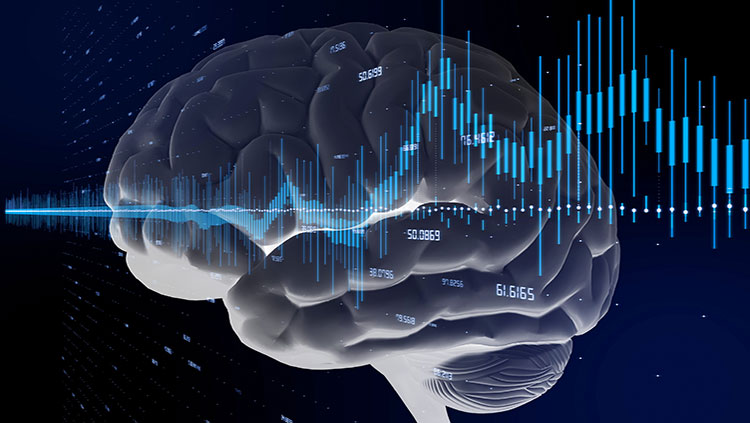
The world is getting older. In the United States, for example, the number of adults 65 and older is expected to double by 2060, from 49 million to 95 million. And, they’ll make up a larger share of the population — 23% in 2060 compared to 15% in 2016.
Experts predict the shifting demographics will strain healthcare and social support systems. But, while there’s no fountain of youth, there are ways to slow age-related declines in physical and cognitive health. A growing field in neuroscience explores ways to slow negative changes and preserve healthy brain function. Watching your diet, dancing, and making music all seem to help.
Diet
Strong evidence suggests that habits and choices that keep your body healthy also benefit your mind. Poor cardiovascular health puts a person at increased risk of age-related cognitive impairment. Diets rich in vegetables, fruits, and whole grains and low in meat and dairy products can improve cardiovascular risk factors such as high blood pressure and high levels of LDL cholesterol — risk factors also linked to cognitive impairment.
People who follow diets low in processed foods, sugar, and saturated fats and high in green leafy vegetables, fruits, fiber, and lean protein are less likely to develop cognitive decline and dementia. Consuming foods included in the Mediterranean and Dietary Approaches to Stop Hypertension (DASH) diets have been shown to benefit brain health.
Consuming specific nutrients may improve cognitive performance and lower risks of dementia. Recent research links omega-3 and omega-6 fatty acids with healthy brain aging. The strongest evidence supports folate and the related B-vitamins (vitamin B12, vitamin B6, and riboflavin) in slowing the progression of cognitive decline and possibly reducing the risk of depression in aging.
High dietary intake of antioxidants such as vitamins C and E and flavonoids is also beneficial. Finally, studies in animals show caloric restriction — substantially reducing the number of calories eaten while maintaining healthy nutrition — can improve cognitive function and extend lifespan.
Exercise
Engaging in regular physical activity can offset some of the declines seen in aging, maintaining learning and memory and reducing the risk of developing dementia. In one study, researchers found that older adults who exercised little or not at all showed sharper declines in memory and thinking skills over a five-year period compared to people who exercised regularly. In fact, the declines were equivalent to aging 10 years in that five-year period.
Physical activity might even slow the progression of Alzheimer’s disease and dementia, and higher levels of physical activity have been linked to improvements in some markers of structural brain health, such as reduced cortical thinning and less shrinkage in the hippocampus. Scientists are learning that dancing in particular is especially beneficial for the aging brain.
Exercise exerts its neuroprotective effects in the brain by improving neuroplasticity — the brain’s ability to form and reorganize connections between neurons in response to changes in behavior and environment. Scientists also believe exercise increases neurogenesis (the formation of new nerve cells) which, in turn, enhances neuroplasticity. Evidence of this comes from mice: older mice allowed to run on a wheel have higher rates of neurogenesis in the hippocampus than sedentary mice, and they perform better on learning and memory tests.
Exercise can also improve blood flow and increase production of neurotrophic factors that support new neurons and synapses. For humans, starting exercise later in life can be beneficial, but the studies suggest adopting an exercise program earlier in life could yield even more neuroprotective benefits.
Mental Stimulation and Social Networks
Engaging in mentally stimulating activities and having large social networks can also improve cognitive function in aging. In lab studies, mice housed in cognitively stimulating environments with many opportunities for social interaction perform better on learning and memory tests as they age compared to mice housed in standard cages.
Much like physical exercise, cognitive stimulation appears to enhance neuroplasticity by increasing neurogenesis and boosting levels of important neurotrophic factors. People who perform cognitively demanding work or engage in stimulating activities such as reading and solving puzzles have lower rates of cognitive decline with aging.
Learning to play a musical instrument can improve hearing and listening skills and help keep your memory sharp. An active social life has also been shown to be beneficial for cognition as we age.
Neuroscientists have learned a lot about the aging brain — how it changes, why it changes, and how to maintain healthy cognitive functioning as we age. Even so, many questions remain. Answers to those questions could identify new strategies for protecting the brain, not only in our later years, but throughout our lives.
This article was adapted from the 8th edition of Brain Facts by Alexis Wnuk.
CONTENT PROVIDED BY
BrainFacts/SfN
References
Kuhn, H. G., Dickinson-Anson, H., & Gage, F. H. (1996). Neurogenesis in the dentate gyrus of the adult rat: Age-related decrease of neuronal progenitor proliferation. Journal of Neuroscience, 16(6), 2027–2033. doi: 10.1523/JNEUROSCI.16-06-02027.1996
Leritz, E. C., Salat, D. H., Williams, V. J., Schnyer, D. M., Rudolph, J. L., Lipsitz, L., … Milberg, W. P. (2011). Thickness of the human cerebral cortex is associated with metrics of cerebrovascular health in a normative sample of community dwelling older adults. NeuroImage, 54(4), 2659–2671. doi: 10.1016/j.neuroimage.2010.10.050
Mora, F. (2013). Successful brain aging: Plasticity, environmental enrichment, and lifestyle. Dialogues in Clinical Neuroscience, 15(1), 45–52. Retrieved from https://www.ncbi.nlm.nih.gov/pubmed/23576888
Phillips, C. (2017). Lifestyle Modulators of Neuroplasticity: How Physical Activity, Mental Engagement, and Diet Promote Cognitive Health during Aging. Neural Plasticity, 2017, 3589271. doi: 10.1155/2017/3589271
Rehfeld, K., Müller, P., Aye, N., Schmicker, M., Dordevic, M., Kaufmann, J., … Müller, N. G. (2017). Dancing or Fitness Sport? The Effects of Two Training Programs on Hippocampal Plasticity and Balance Abilities in Healthy Seniors. Frontiers in Human Neuroscience, 11. doi: 10.3389/fnhum.2017.00305
Smith, P. J., & Blumenthal, J. A. (2016). Dietary Factors and Cognitive Decline. The Journal of Prevention of Alzheimer’s Disease, 3(1), 53–64. doi: 10.14283/jpad.2015.71
Spalding, K. L., Bergmann, O., Alkass, K., Bernard, S., Salehpour, M., Huttner, H. B., … Frisén, J. (2013). Dynamics of hippocampal neurogenesis in adult humans. Cell, 153(6), 1219–1227. doi: 10.1016/j.cell.2013.05.002
U.S. Census Bureau. (2017). Table 2. Projected age and sex composition of the population. In 2017 National Population Projections Tables. Retrieved from https://www.census.gov/data/tables/2017/demo/popproj/2017-summary-tables.html
van Praag, H., Shubert, T., Zhao, C., & Gage, F. H. (2005). Exercise enhances learning and hippocampal neurogenesis in aged mice. The Journal of Neuroscience: The Official Journal of the Society for Neuroscience, 25(38), 8680–8685. doi: 10.1523/JNEUROSCI.1731-05.2005
Willey, J. Z., Gardener, H., Caunca, M. R., Moon, Y. P., Dong, C., Cheung, Y. K., … Wright, C. B. (2016). Leisure-time physical activity associates with cognitive decline. Neurology, 86(20), 1897–1903. doi: 10.1212/WNL.0000000000002582
Yin, J.-A., Liu, X.-J., Yuan, J., Jiang, J., & Cai, S.-Q. (2014). Longevity manipulations differentially affect serotonin/dopamine level and behavioral deterioration in aging Caenorhabditis elegans. The Journal of Neuroscience: The Official Journal of the Society for Neuroscience, 34(11), 3947–3958. doi: 10.1523/JNEUROSCI.4013-13.2014





.jpg)











